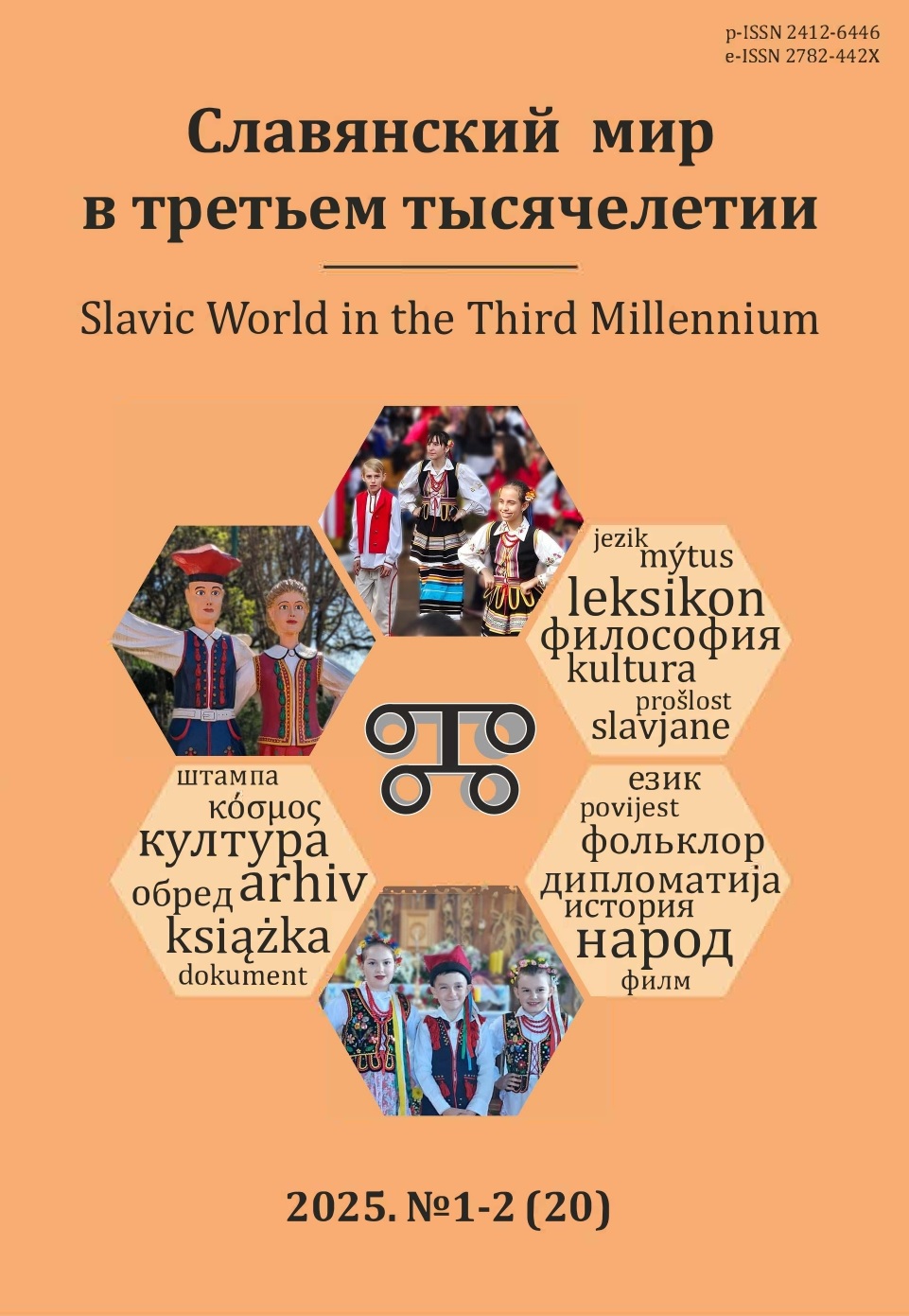Non-Linguistic Criteria of Peoples’ Classification in the “Military Encyclopedic Lexicon”
DOI:
https://doi.org/10.31168/2412-6446.2025.20.1-2.02Keywords:
Amateur ethnography, people, language, peoples’ classification, D. A. Milyutin, L. I. Sedeller, N. V. Savelyev-RostislavichAbstract
In scientific ethnography of the 19th century the idea about the importance of linguistic factor in peoples’ classification was prevalent (the failed Second general census of the population of the Russian Empire considered respondent’s native language to “determine his nationality”; language criterion of peoples’ classification was deemed determinant in the “Brockhaus and Efron Encyclopedic Dictionary”). The article shows that notions about language being an indispensable attribute of a separate people had somewhat spread beyond the scientific discourse too (for example, the classic of Russian literature M. Ye. Saltykov-Shchedrin and the Don poet A. A. Leonov refused to consider the Don Cossacks a people, pointing out their lack of unique language). However, such notions cannot be considered universally accepted. In particular, the “Military Encyclopedic Lexicon”, which was published by the military, has a number of articles where peoples are not classified by linguistic factor. D. A. Milyutin used classification by physical appearances and features for the peoples of Africa, N. V. Savelyev-Rostislavich – classification by “places of habitation” for the Slavs, and the editor of this encyclopedia, L. I. Seddeler, just unsystematically listed the peoples in his articles on regional geography. Moreover, of these three authors only D. A. Milyutin used a relatively consistent terminology, and only he mentioned at all the contemporary languages of the peoples he was describing. The “Encyclopedia of Military and Naval Sciences”, a later military dictionary of the 19th century, also has articles in which peoples are classified by criteria not wholly understandable and, probably, non-linguistic. Thus, not only a clear understanding that every people must have their own language was absent among the military of the 19th century Russian Empire – it was acceptable to completely ignore linguistic issues in the texts on regional geography and ethnography.
The research was supported by the Strategic Academic Leadership Program of the Southern Federal University (“Priority 2030”).
Received 9 February 2025
Revised 11 June 2025
Accepted 15 June 2025
For citation: Peretyatko, A. Yu., 2025. Non-Linguistic Criteria of Peoples’ Classification in the “Military Encyclopedic Lexicon”. Slavic World in the Third Millennium, 20 (1–2), pp. 27–52. https://doi.org/10.31168/2412-6446.2025.20.1-2.02



